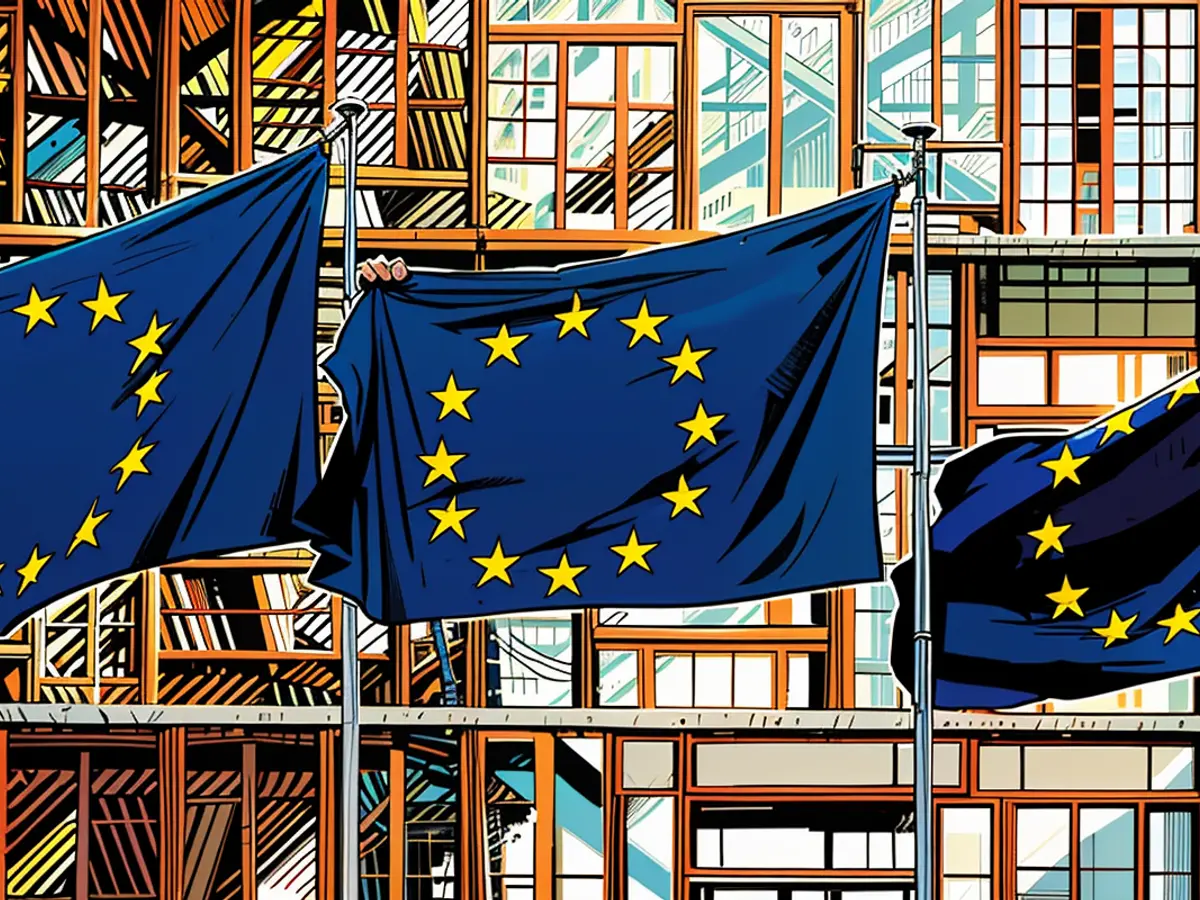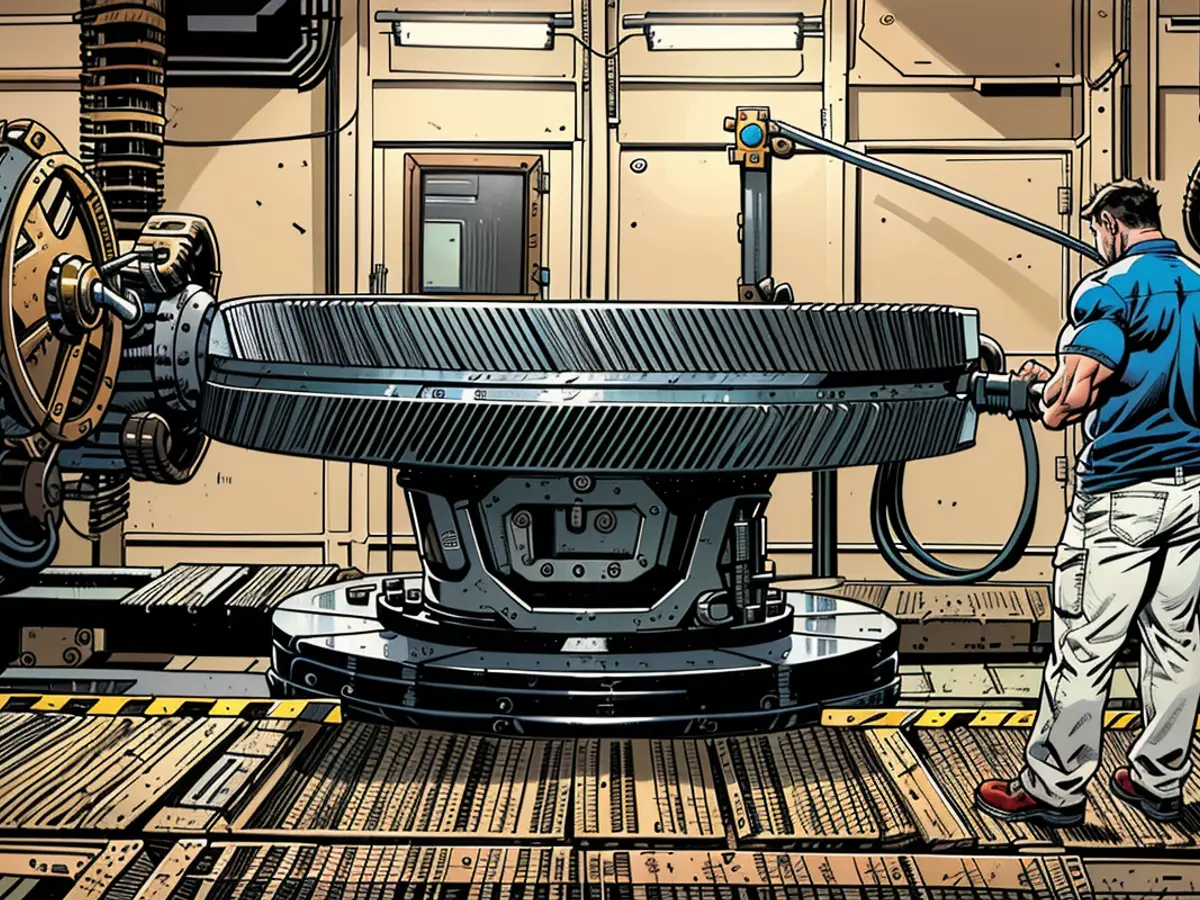The European Union is in talks to potentially require airlines to provide passengers with a meal if their flight is delayed by two hours or more. - Voting in the European elections has commenced in Germany.
On the final day of European elections voting commenced in Germany. Around 65 million German citizens were invited to cast their votes for the European Parliament. Polling stations will be open until 6 PM.
Apart from Germany, 20 other European Union countries are also conducting elections today. United Kingdom, Belgium, and Italy are among those that have already finished voting. Around 360 million people within the EU can participate in these elections.
A total of 720 seats are at stake in the European Parliament, 96 of them will be from Germany. The European elections are among the largest democratic votes worldwide and the only direct vote across borders. There are around 1400 candidates running for these 35 parties and other political groups in Germany.
Surveys predict that the Union will take the lead in Germany's elections. Many other EU countries are expecting poor performances from right-wing parties, including Austria, France, and Italy. In Germany, the CDU and CSU are projected to win the European elections comfortably, according to the polls. SPD, Greens, and AfD are in a similar position.
A preliminary estimation about the distribution of seats in the new European Parliament is expected on Sunday between 8:20 PM - 8:30 PM. Preliminary results from several EU countries are expected after 11 PM.
Separately, residents of several German federal states were also invited to vote for their local legislatures on the same day. Democratically elected posts like district councils, municipal councils, or district assemblies will be determined in Baden-Württemberg, Brandenburg, Hamburg, Mecklenburg-Vorpommern, Rhineland-Palatinate, Saarland, Saxony, and Saxony-Anhalt.
In Thuringia, where local elections took place earlier, voters can also elect their future district president or mayor. In 15 districts and independent cities, a runoff election will take place. In nine instances, AfD candidates are also trying their luck. Right after the first round of local elections, AfD gained several seats in these parliaments, but only managed a poor show at the town halls and district offices.
Performance in Brandenburg and Saxony is also significant - these states' local elections are seen as a test of public opinion before the state polls in September.
Demonstrations opposing the right and in support of democracy were held across Germany on Saturday. The closing rallies for the European election campaign included numerous protests and calls to vote. Federal Chancellor Olaf Scholz spoke on the subject of his Ukraine stance at an SPD election event in Duisburg and assured there would be no NATO personnel in the nation. However, France is considering sending military trainers to Ukraine.
A diverse coalition of civil society groups urged the people, on the day before the elections, to take to the streets against right-wing extremism and in favor of democracy in Berlin, Hamburg, Munich, Cologne, and Dresden. They estimated there were around 15,000 attendees in Berlin alone. Substantive messages on demonstration signs were "Heart over hate", "Human rights instead of right-wingers", and "Diversity without alternatives".
Campaigns of violence against politicians continued till the last day. A Foundation for the Integration of Refugees in Dresden was attacked, which also houses an AfD local faction. The Prime Minister of Denmark, Mette Frederiksen, had to postpone several engagements after facing a physical assault on Friday evening.
CDU Chairman Friedrich Merz urged his followers in his weekly newsletter to support the Conservatives and advocated for incumbent EU Commission President Ursula von der Leyen (CDU) in his email. He praised her for her international respect and said voters could enforce stability in Berlin by supporting her in the European elections.
Von der Leyen is campaigning for a second term as the President of the EU Commission. The position is generally determined by the European political family that secures the most votes in the European elections. She's occupied the post since 2019. As the Commission President, she leads a workforce of about 32,000 employees responsible for proposing new EU laws and monitoring compliance with European treaties. Additionally, she represents the EU at most international summits such as G7 and G20. 2






